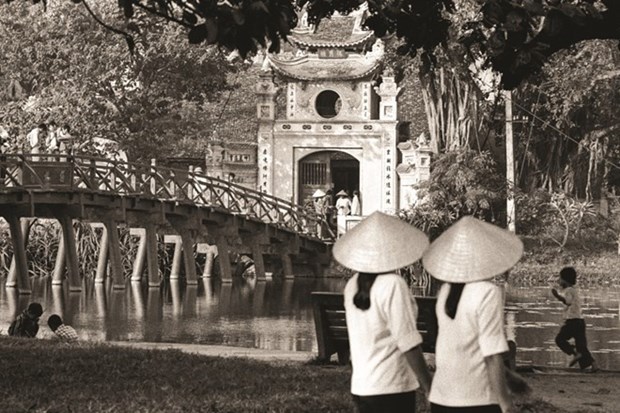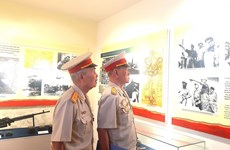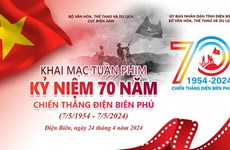Hanoi life in 1980s depicted in photos of former British diplomat
 The photo taken by John Ramsden during his worked in Vietnam during the early 1980s. (Photo: VNA)
The photo taken by John Ramsden during his worked in Vietnam during the early 1980s. (Photo: VNA)Hanoi (VNA) - The street corners, street vendors, festivals and small hamlets of 1980’s Hanoi were lively and truthfully depicted through the len of photographer John Ramsden.
Decades later, his images serve as a time capsule. He released a pictorial book of about 100 monochrome photos of Hanoi, as well as others of the northern region and HCM City, from 1980 to 1982.
Ramsden was sent to Hanoi as part of the British Diplomatic Service’s mission. For three years, he traveled around the city and the surrounding areas to explore the life here. He took more than 1,800 photos of the daily life of Hanoians. He stored the photos for his memories.
He later shared his Hanoi memories at an exhibition at the Museum of East Asia in Bath, UK. These photos returned to Hanoi in 2013 for an exhibition.
Now, the book Ha Noi Mot Thoi (Hanoi – Spirit of a Place) has been released by Nha Nam Company in co-ordination with the British Council. The book release was facilitated by historians Duong Trung Quoc, Andrew Hardy, Vu Thi Minh Huong and journalist/poet Pham Tuong Van.
In the early 1980s, Vietnam was beginning a difficult period following the war’s end. Amidst the post-war living environment, however, one could feel a sense of hope and a relentless fighting spirit.
The book is a valuable document to help readers learn more about Hanoi before the Doi Moi (Renewal) period, said Nguyen Quang Thieu, vice chairman of the Vietnamese Writers’ Association.
“Moments captured in Ramsden’s photos are eternal in Hanoians’ minds,” said Thieu.
“We can feel the peace in life and the tranquillity in people’s souls.”
Quoc, a historian, stressed that each photo of Ramsden is a witness of Vietnamese history, even though he just captured the landscape and daily life of ordinary people in the society.
“I believe that each reader looking at his photos will find a part of his/her memory,” he said.-VNA












